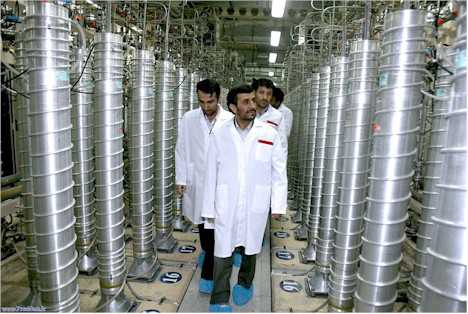Turkey is taking a risk with its strategy to avoid viewing Iran as a threat within NATO plans for a missile defense system and its lack of precautions in the face of Tehran’s armament, according to experts.
“A country can’t make its plans according to intentions. We might enjoy good relations with Iran but this can change, just as the good relations during the shah times between
Turkey is taking a risk with its strategy to avoid viewing Iran as a threat within NATO plans for a missile defense system and its lack of precautions in the face of Tehran’s armament, according to experts.
“A country can’t make its plans according to intentions. We might enjoy good relations with Iran but this can change, just as the good relations during the shah times between Washington and Tehran changed,” said former army official Serdar Erdurmaz.
“What counts for NATO are not intentions but capabilities,” said Ümit Pamir, Turkey’s former envoy to NATO.
“What is important is not whether Iran will use its ballistic missiles against Turkey. Actually, I as well do not believe that Iran will attack Turkey. What matters is not the actual threat but the perception. Iran’s influence will increase as its armaments efforts continue, and if you don’t counterbalance that armament effort, your political influence will automatically diminish,” said Ahmet Han, an international relations expert from Istanbul’s Kadir Has University.
Erdurmaz, who is now working for the Turkish Center for International Relations and Strategic Analysis, or TÜRKSAM, recalled that Turkey was seeking to purchase anti-missile defense system through its own means. A tender for the purchase of a long-range air and missile defense system was opened in 2007 by the Undersecretariat of Defense, said Erdurmaz, but said the plans were later suspended due to its high cost.
“The most economic way of counterbalancing Iranian armament efforts is to accept the system that will be endorsed by NATO. Refusing this offer from NATO is jeopardizing Turkey’s long-term interests, and is not clever at all,” said Han.
Experts also recalled that Turkey was among alliance members to ask the United States to incorporate its anti-missile plans within NATO. When the U.S. administration under George W. Bush devised an anti-missile plan, which envisaged the deployment of key elements in Poland and Czech Republic, Turkey was among alliance members to ask Washington to incorporate its plans with NATO, said Pamir. Like some other members of the alliance, Turkey was concerned by Russia’s reaction to the Bush plans and thought it would be better to have a missile defense system within NATO.
Pamir is one of the 12 wise men tasked by NATO Secretary-General Anders Fogh Rasmussen with preparing a report on the new strategic concept that will be endorsed by NATO at its next summit in November. The report about the road map on the challenges and missions of the alliance specifically named Iran as a threat to the alliance. “But the NATO secretary-general does not have to endorse this view. He has prepared his own proposal,” Pamir said.
If Turkey blocks NATO plans to have an anti-missile mechanism, it will lift the debates on Turkey’s shifting axis to a whole new level, said Han. After the stalemate with the EU, troubles with NATO will further fuel debates on Turkey’s policies, Han believes. He said this would contradict Foreign Minister Ahmet Davutoğlu’s logic that the reason Turkey is influential in the East stems from its influence in the West.
Meanwhile, internal dynamics are also playing a role in Turkey’s policy choices on Iran’s armament efforts.
Han argued that the government’s “zero problems with neighbors” policy aims to de-militarize foreign relations in order to keep the army at a low profile. “In order to counterbalance Iran’s army you need to do it by military means, which means you have to give credit to the army and raise its profile.” Han said the government’s internal policies overlook long-term international relations, despite the fact that it will be to the detriment of Turkey’s long-term interests.hurriyet
via Turkey faces risks over ‘Iran policy,’ experts say.






